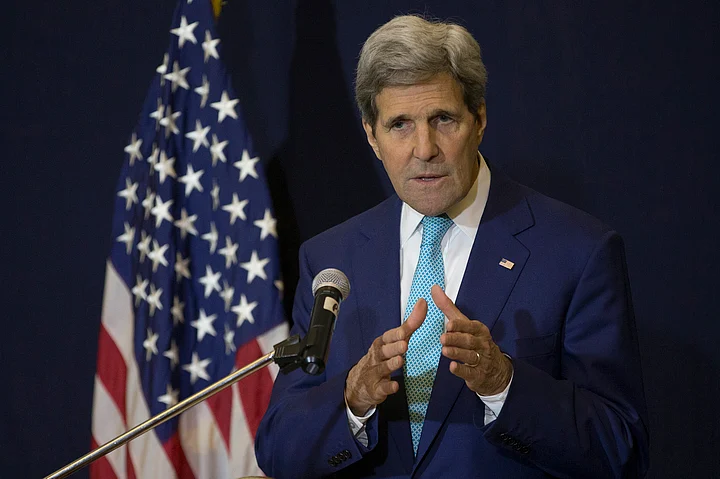Iran and the US kicked off a new round of nuclear talks with US Secretary of State John Kerry saying it was time to finish the job and agree to a deal after 18 months of intense negotiations.
“If (Iran’s nuclear programme is) peaceful, let’s get it done. And my hope is that in the next days, that will be possible,”
- Kerry told CBS television
Yesterday he arrived to join the talks in the Swiss lakeside city of Lausanne and is today expected to meet Iranian Foreign Minister Mohammad Javad Zarif, the State Department said.
Later today Zarif is due to travel to Brussels to meet his British, French, German and EU counterparts before returning to Lausanne.
Kerry, under major pressure in Washington not to strike a soft agreement, wants Iran to dramatically scale down its nuclear programme in order to make it much more difficult to develop atomic weapons.
Zarif, himself under pressure from hardliners to get painful sanctions eased, says Iran’s atomic programme is for purely peaceful purposes. Tehran wants to expand its activities.
The target is for Iran and six world powers – the US, Russia, China, Britain, France and Germany – to agree the outlines of a deal by March 31 and to fine-tune the details by July 1.
The nuclear standoff has lasted more than a decade, but the 2013 election of President Hassan Rouhani resulted in a minor thaw and the past 18 months have seen an unprecedented diplomatic effort.
Under a landmark November 2013 interim deal, Tehran stopped expanding its activities in return for minor sanctions relief.
Since then the parties have been pushing for a lasting accord.
But to the alarm of Israel, US Republicans and Washington’s Gulf allies, the US looks to have abandoned insisting that Iran dismantle all nuclear activities.
Instead it appears prepared to tolerate a small programme under tight controls and potentially shipping abroad Iran’s nuclear material, possibly to Russia.
(At The Quint, we question everything. Play an active role in shaping our journalism by becoming a member today.)
